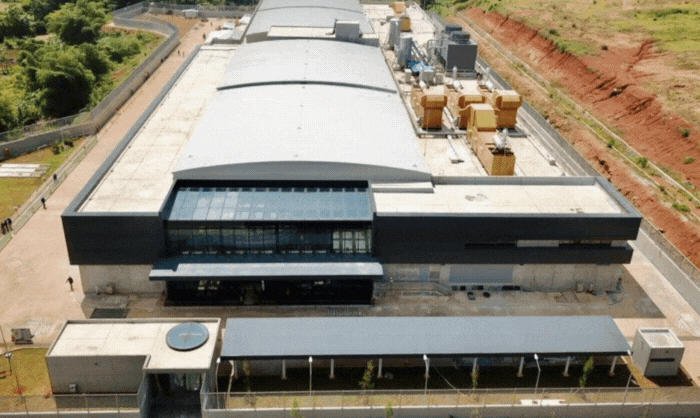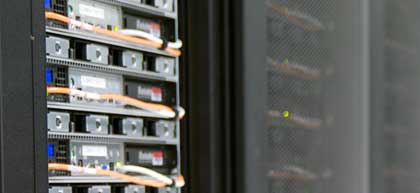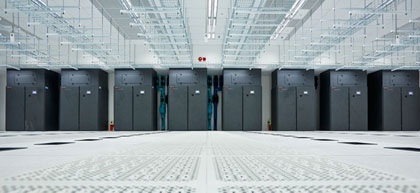State Of The Market: Indonesia | BroadGroup

IndoKeppel Data Centre 1
State Of The Data Centre Market: Indonesia
Senior Product Developer David Tran looks at the scope for the Indonesian data centre market to develop in a country whose future plans include building a new capital city – leaving a question hanging over what next for the current capital Jakarta.
With a population of 273 million spread across 6,000 inhabited islands, Indonesia has been poised as the fastest growing internet economy in Southeast Asia ($27bn in 2019) and projected at $100bn by 2025. Yet with local market growth drivers, good connectivity and potentially large-scale renewable energy resources, Indonesia presents an upside opportunity for data centre growth and is increasingly perceived as a new regional hub for hyperscale data centres.
Planned localisation of data requirements, an attractive local market through enterprise digital transition, mobile data (100 million users forecast by 2023) and e-commerce demand have all accelerated the pace of committed MW and inward investment. All this suggests a highly active growth opportunity, even if at present set back by the global health crisis.
Keppel Data Centres is overriding the challenges of the coronavirus pandemic in Indonesia, with plans to open its first data centre in the greater Jakarta area later this year. IndoKeppel Data Centre 1 (IKDC 1) is developed and operated by a 60:40 joint venture (JV) between the Salim Group and Keppel Data Centres, and owned between the Salim Group and the Alpha Data Centre Fund (Alpha DC Fund) under the same split.
This latest site investment expands Keppel’s network of data centres in the region, in which it currently owns and operates a global portfolio of 28 data centres in Asia Pacific and Europe.
The colocation data centre site, located in Bogor and ideal for hyperscale campus development, will be built over three phases in a 7-hectare data centre campus, with the construction of the data centre's core and shell as well as Phase 1 fit-out slated for completion in 2H 2021. This completion will see the site occupy an IT load of 4.5 MW and a gross floor area of just over 9,750 sqm. With Tier 3 specifications, IKDC 1 will feature resilient power and cooling infrastructure as well as redundant fibre and power connections to ensure high availability.
Wai Meng Wong, CEO of Keppel Data Centres, told Datacloud that the site is adjustable to demand and works with partners and customers effectively to fulfil expectations. “In addition, we are bringing in local fibre network providers for seamless connectivity. We are also exploring access to renewable energy to meet the sustainability objectives of Keppel and our clients. A scalable campus, IKDC 1 is well-suited to meet the requirements of hyperscale cloud service providers and enterprise clients,” he said.
Indonesia has become an important market for Keppel to tap into the country’s strong data centre demand and further support customers’ aspirations for the market, which has seen sectors like e-commerce, gaming, social media and media companies grow quickly in the region. “Customers around the world are increasingly interested in venturing into or scaling up operations in Indonesia,” Wong continued.
Indonesia is also a strategic hub and an attractive location for cloud computing investments. AWS, Microsoft Azure, Google Cloud, Alibaba Cloud and others have all announced local regions in the last two years. With strong government support, Indonesia’s enterprises are undergoing rapid digital transformation, stated Wong, and the overall enterprise IT market is growing quickly.
In line with Keppel’s Vision 2030, which places sustainability at the heart of the Group’s strategy, Keppel Data Centres is studying ways to create more energy efficient and greener data centre solutions, stated Wong. Keppel Data Centres also works with its sister company, Keppel Renewable Energy, to explore green energy options for its data centres.
“We proactively adopt new technologies and energy conservation best practices to optimise energy and water efficiency and minimise greenhouse gas emissions for our existing data centre operations.
“In addition, we are studying floating data centres, LNG and hydrogen infrastructure for power generation and cooling, as well as carbon capture technologies. The use of hydrogen as an energy source can potentially be more environmentally friendly as the combustion of hydrogen does not produce greenhouse gas emissions,” Wong concluded.
This article was first published on BroadGroup's March newsletter








